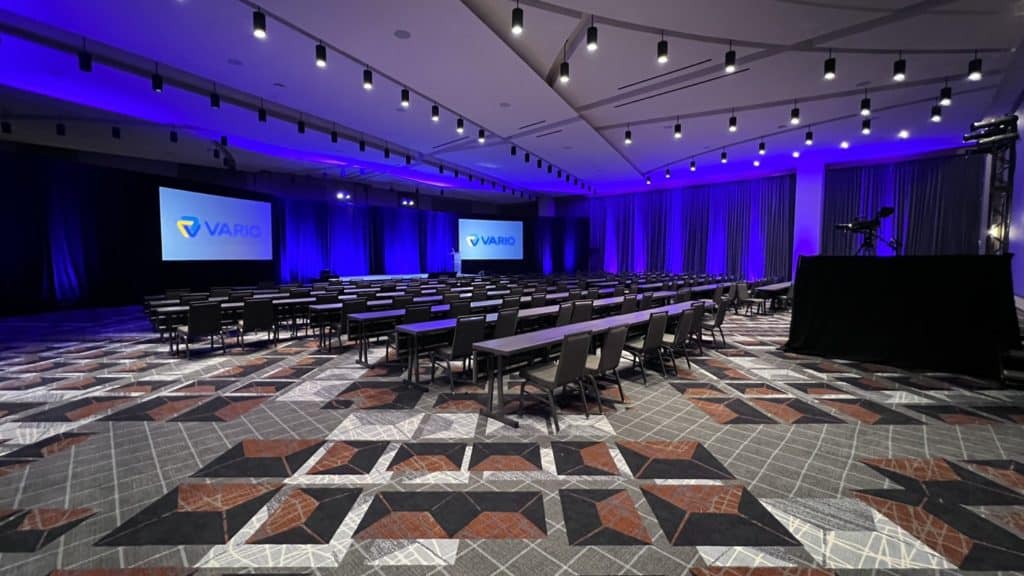A Deep Dive Into Exactly How Event Management Works to Produce Unforgettable Experiences
Event management is a complex discipline that combines different aspects to craft extraordinary experiences. It requires a clear understanding of the event's objective and audience. Planners have to navigate budgeting, logistics, and advertising and marketing to guarantee a smooth execution. Each part plays an essential duty in attaining the preferred influence. The journey does not finish with the event itself. There are insights to uncover that can form future endeavors.
The Fundamentals of Event Management
Effective event management incorporates a series of crucial concepts that direct the preparation and execution of effective occasions. At its core, it includes recognizing the event's purpose, target market, and wanted end results. Determining the target demographic is crucial, as it notifies choices connected to content, marketing, and logistics.
Budgeting is one more fundamental aspect, ensuring that resources are assigned successfully while fulfilling the event's goals. This includes planning for unexpected costs that may arise.
Time management plays an essential duty, as event supervisors need to establish a thorough timeline to collaborate different tasks and turning points.
In addition, reliable communication amongst stakeholders, vendors, and team participants is vital to assure positioning and prevent misunderstandings.
Ultimately, threat management should be considered, with contingency strategies in area to address possible obstacles, thus improving the general experience for guests and assuring a smooth execution of the event. (charlotte event companies)

Trick Functions in Event Planning
In event preparation, recognizing key duties is essential for effective execution. The event coordinator is accountable for supervising logistics and guaranteeing all elements straighten with the vision. Furthermore, efficient vendor management is vital for keeping high quality and promoting strong collaborations throughout the planning process.
Event Coordinator Obligations
An occasion organizer orchestrates the intricate components of event preparation, ensuring seamless execution from conception to verdict. They are accountable for conceiving the event theme, setting budget plans, and developing timelines to keep the project on track. Coordination with stakeholders, including clients, place managers, and volunteers, is important to line up expectations and promote communication. The planner likewise manages logistics, such as wedding catering, transport, and modern technology needs, guaranteeing all parts operate harmoniously. They carry out site brows through, manage schedules, and troubleshoot concerns that may develop throughout the event. Post-event, the coordinator evaluates the event's success, gathering feedback and evaluating results to notify future jobs. This diverse role calls for strong organizational abilities, interest to detail, and efficient social communication.
Supplier Management Basics
Guiding via the landscape of supplier management is important for successful event preparation. Efficient supplier management entails determining, picking, and working with distributors that give important solutions, such as event catering, audiovisual assistance, and design. Event coordinators have to preserve solid communication with vendors to guarantee that all elements align with the event's vision. Trick roles consist of the supplier manager, that oversees agreements and arrangements, and the logistics coordinator, in charge of on-site setup and implementation. It's imperative to develop clear expectations and timelines, promoting a joint environment that enhances the general experience. By focusing on these components, event coordinators can browse possible challenges, making sure that every detail adds to a seamless and unforgettable event.
Crafting a Vision: Principle Growth

Once a vision is established, it becomes necessary to translate it into workable parts. This includes specifying the ambience, selecting suitable venues, and identifying the event's design. Teaming up with stakeholders, including enrollers and companions, further improves the idea, making certain that all parties share a linked understanding of the event's purpose. Inevitably, a strong vision not only enhances guest engagement yet likewise establishes the phase discover this info here for remarkable experiences that resonate long after the event concludes.
Budgeting and Source Appropriation
With a clear vision in area, the next action in event management involves careful budgeting and source allotment. This vital stage warranties that all essential components are moneyed and straightened with the event's purposes. Event supervisors start by estimating costs connected with place selection, catering, entertainment, and advertising and marketing. They produce a thorough spending plan that details each category, permitting openness and liability.
Source allowance extends beyond finances; it additionally encompasses personnels. Recognizing team duties, duties, and timelines is vital to assure efficiency. Event supervisors should additionally think about contingencies for unanticipated expenditures or adjustments in extent, developing a buffer within the spending plan.
In addition, focusing on spending on elements that improve guest experiences is critical. By tactically designating sources, event managers make best use of effect while preserving economic control. This regimented strategy not only fosters effective occasions however additionally constructs trustworthiness and count on with stakeholders and individuals.
Logistics: The Backbone of Event Implementation
While budgeting lays the groundwork for an occasion, logistics function as its foundation, assuring that every element is implemented efficiently and efficiently. charlotte event companies. This includes a vast array of activities, consisting of location option, transport setups, and equipment procurement. Efficient logistics management calls for thorough preparation and coordination to ensure that all components align with the event's timeline and objectives
Key elements of logistics consist of inventory management, where supplies and products are tracked to protect against lacks, and staffing, which includes recruiting and training employees to handle different tasks. Communication is also vital, as it facilitates collaboration among suppliers, sponsors, and the event group.

Advertising and Promo Methods
Effective advertising and marketing and promo techniques are important for maximizing presence and involvement at an event, as they generate rate of interest and exhilaration among possible participants. Event supervisors utilize a mix of traditional and digital advertising and marketing techniques to reach their target audience. Social network platforms, email campaigns, and targeted ads are frequently utilized to produce buzz and foster area communication. Cooperations with influencers or industry leaders can enhance reliability, while engaging content such as videos and endorsements can reverberate with potential attendees.
In addition, leveraging event-specific hashtags and creating shareable graphics encourages organic promo amongst participants. Early bird ticket offers and unique promos can incentivize enrollment, furthermore increasing passion. Additionally, a properly designed site that uses simple navigating and clear details regarding the event can boost the customer experience. By executing these marketing and additional hints promo approaches, event supervisors can assure higher exposure and ultimately create a remarkable experience for all participants.

Measuring Success: Responses and Examination
Success in event management rests on robust responses and examination devices. These procedures are crucial for identifying the effectiveness of an occasion and recognizing locations for renovation. By gathering input from attendees, organizers can analyze satisfaction degrees, understand choices, and determine general influence. Surveys and meetings function as useful devices for accumulating quantitative and qualitative information, permitting comprehensive analysis.
Additionally, reviewing vital efficiency signs (KPIs) such as presence rates, interaction levels, and roi (ROI) offers a clearer picture of event success. Post-event debriefing sessions with the preparation team likewise contribute insights, fostering a culture go to my site of continual renovation.
Inevitably, an organized method to comments and assessment not just boosts future events but additionally reinforces partnerships with stakeholders. By implementing these strategies, event managers can produce unforgettable experiences that resonate with individuals and drive ongoing engagement.
Regularly Asked Questions
How Do Event Managers Manage Unexpected Obstacles During an Occasion?
Event supervisors attend to unexpected difficulties by remaining calmness, examining the situation, and implementing backup strategies - charlotte event companies. They connect properly with their group, adjust quickly, and prioritize remedies to ensure the event continues efficiently and efficiently
What Modern Technology Tools Are Crucial for Modern Event Management?
Crucial technology tools for modern event management consist of event enrollment software program, task management applications, participant involvement platforms, and analytics devices. These resources simplify procedures, boost communication, and enhance total event experiences for coordinators and individuals alike.
Just How Do Cultural Distinctions Effect Event Preparation and Implementation?
Social differences significantly influence event preparation and implementation. They impact styles, custom-mades, communication styles, and assumptions, necessitating tailored methods to ensure inclusivity and regard, ultimately forming the overall experience and success of the event.
What Are the Honest Considerations in Event Management?
Honest considerations in event management encompass transparency, sustainability, cultural sensitivity, and inclusivity. Planners must focus on justness, regard varied target markets, decrease ecological impact, and warranty accessibility to develop accountable and unforgettable experiences for all individuals.
Just How Can Sustainability Be Integrated Into Event Preparation?
Sustainability can be integrated into event planning by making use of green materials, decreasing waste, sourcing neighborhood vendors, carrying out carbon countered programs, and promoting digital solutions to minimize paper usage, thus boosting ecological awareness within the event's structure.